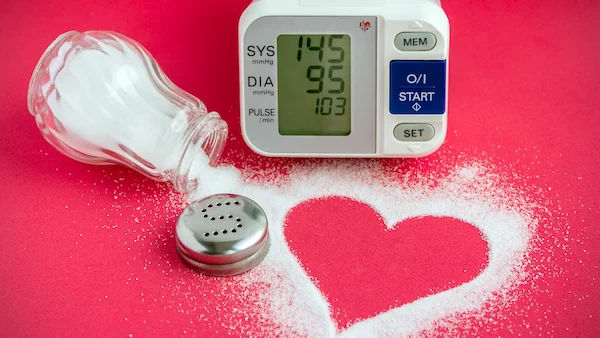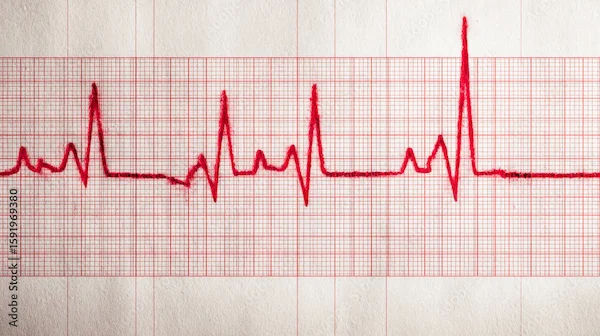- Male
- 30 Years
- 07/02/2025
I'm really confused about my recent echo results. Two months ago, it showed mild tricuspid valve regurgitation, and after making some lifestyle changes and a follow-up echo, it's now showing trivial regurgitation and valve thickening. I'm not sure what these changes mean or what I should do next. Can you help me understand what's going on and what steps I should take to address this? I've included my report if that helps.
Answered by 1 Apollo Doctors
Based on the information provided, it seems like there has been an improvement in the tricuspid valve regurgitation from mild to trivial, which is a good sign. To address the trivial regurgitation and valve thickening, I recommend continuing with your healthy lifestyle changes and following up with your healthcare provider for further evaluation and management. In terms of medication, you can consider taking a diuretic like Lasix (furosemide) to help reduce any fluid buildup and ease the workload on the heart. Additionally, an ACE inhibitor like Lisinopril can help reduce blood pressure and lessen the strain on the heart. It's important to have regular follow-up appointments with your doctor to monitor any changes in your condition and adjust your treatment plan accordingly. If you have any symptoms such as shortness of breath, chest pain, or swelling, please seek medical attention promptly. Remember, lifestyle modifications, medication adherence, and regular medical follow-ups are key in managing heart conditions.
Dr. Dhankecha Suggests...
Consult a Cardiologist
Answered 04/07/2025
0
0

More Cardiology Health Queries
View allI was recently told I have mitral valve regurgitation with trivial mitral regurgitation, and I'm really worried about how long it might take for this to get worse, like to a moderate or severe level. Do most people with this condition experience a worsening over time, and how common is it for it to progress? I'm finding it hard to concentrate on anything else because I'm so anxious about it. Can you help clarify this for me?
cardiac opinion
Answered by 1 Apollo Doctors
I've got a CRP level of 55.4 mgL, and I know that's pretty high. I have MVP and MR but no symptoms. What's going on with the CRP? Should I be worried? Any advice on what I should do next?
In the case of mitral valve prolapse (MVP) and mitral regurgitation (MR), an elevated CRP level of 55.4 mgl could be due to the presence of inflammation related to these conditions. Since you are not experiencing any symptoms, it is important to monitor your condition closely. To help manage inflammation and potentially reduce CRP levels, you can consider taking anti-inflammatory medications such as Ibuprofen (Advil) 400mg twice daily after meals. Additionally, maintaining a healthy lifestyle with regular exercise and a balanced diet can also help in managing inflammation. It is important to follow up with your healthcare provider for further evaluation and management of your MVP and MR, as they can provide personalized recommendations based on your individual health status.
Answered by 1 Apollo Doctors
Hey there, so my wife had some trouble breathing last Sunday night. We managed to see a doctor by Tuesday, and after doing an ECG, we found out theres this change called ischemia. The doctor said it's not serious and not to worry, and we even did an echo which turned out normal. But they still prescribed ecosprin tabs, and now I'm a bit confused. Is this something I should be really worried about, or can I take it easy since the doc said it's normal? Could this become a serious issue down the line? Is it one of those things that just come and go, or might it stick around for life? She's only 35, and we have no family history of heart problems, so what's up with this? What should we do to make sure her heart stays healthy?
1. The doctor's assessment that the ischemia shown on the ECG is not serious and normal is reassuring. Ecosprin (Aspirin) is commonly prescribed to prevent blood clots and reduce the risk of heart attack and stroke. It is important to follow the doctor's advice and continue taking the medication as prescribed. 2. As per the current evaluation and prescription of ecosprin, the likelihood of serious issues later should be reduced. However, it is essential to follow up with regular check-ups and adhere to any further recommendations from the doctor. 3. Ischemia can be a temporary or chronic condition depending on the underlying cause. In this case, since the echo was normal and the doctor reassured that everything is okay, it may not necessarily be a lifetime disease. However, ongoing monitoring and lifestyle modifications may be necessary. 4. The presence of ischemia at the age of 35 without a family history of cardiac issues raises the importance of evaluating other risk factors such as smoking, high blood pressure, diabetes, high cholesterol, obesity, and physical inactivity. These factors can contribute to the development of heart conditions at a younger age. 5. Since there is no known cardiac history in the family, it is crucial to focus on lifestyle modifications such as maintaining a healthy diet, regular exercise, avoiding smoking, managing stress, and attending follow-up appointments with the doctor for monitoring. 6. Precautions that can be taken include following a heart-healthy diet low in saturated fats and cholesterol, engaging in regular physical activity, maintaining a healthy weight, managing stress levels, avoiding smoking and excessive alcohol consumption,
Answered by 1 Apollo Doctors
Disclaimer: Answers on Apollo 247 are not intended to replace your doctor advice. Always seek help of a professional doctor in case of an medical emergency or ailment.

_3.webp)



